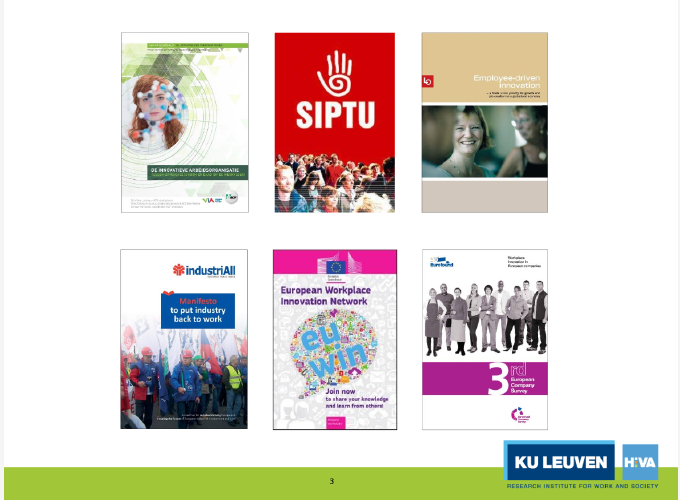A strategy in search of partners: trade union engagement in workplace innovation

A strategy in search of partners: trade union engagement in workplace innovation
Abstract
In the wake of the Great Recession and under pressure to find “productivity coalitions” (McLaughlin, 2013), European labor unions in manufacturing sectors are cautiously engaging with strategies of “workplace innovation” and “employee driven innovation”. This involves dealing with topics that are traditionally considered management prerogative, incorporating forms of employee involvement that are less familiar or even in conflict with union structures, and adopting or re-working concepts and discourses such as “high performance work practices”, “employee involvement”, and “lean production”. In this paper, we explore these tensions, the structural drivers for engaging in such strategies, and both the pitfalls and opportunities from a union perspective. We do so on the basis of a cross-national, qualitative-comparative analysis of both thirteen company cases, and expert interviews. These interviews on the topic of representative employee participation in innovation processes were conducted in 2015 with union officials, employers’ organization representatives, industrial relations researchers and policy actors in Belgium, Norway, Germany and Ireland. Starting from the ‘Varieties of Capitalism’-perspective (Hall & Soskice, 2001), the potential organizational-level pathways through which employee representative can engage in innovation processes are summarized and linked to the institutional features that drive and sustain this engagement, such as intermediary cooperative associations (Sørensen, Doellgast & Bojesen, 2015; Marchington, 2015). Finally, we locate and critically discuss this evolution in (self-perceived) labor union role in the wider historical debate on workplace democracy (Hyman, 2015) and the impact of financialized capitalism on employee voice (Lippert et al., 2014).